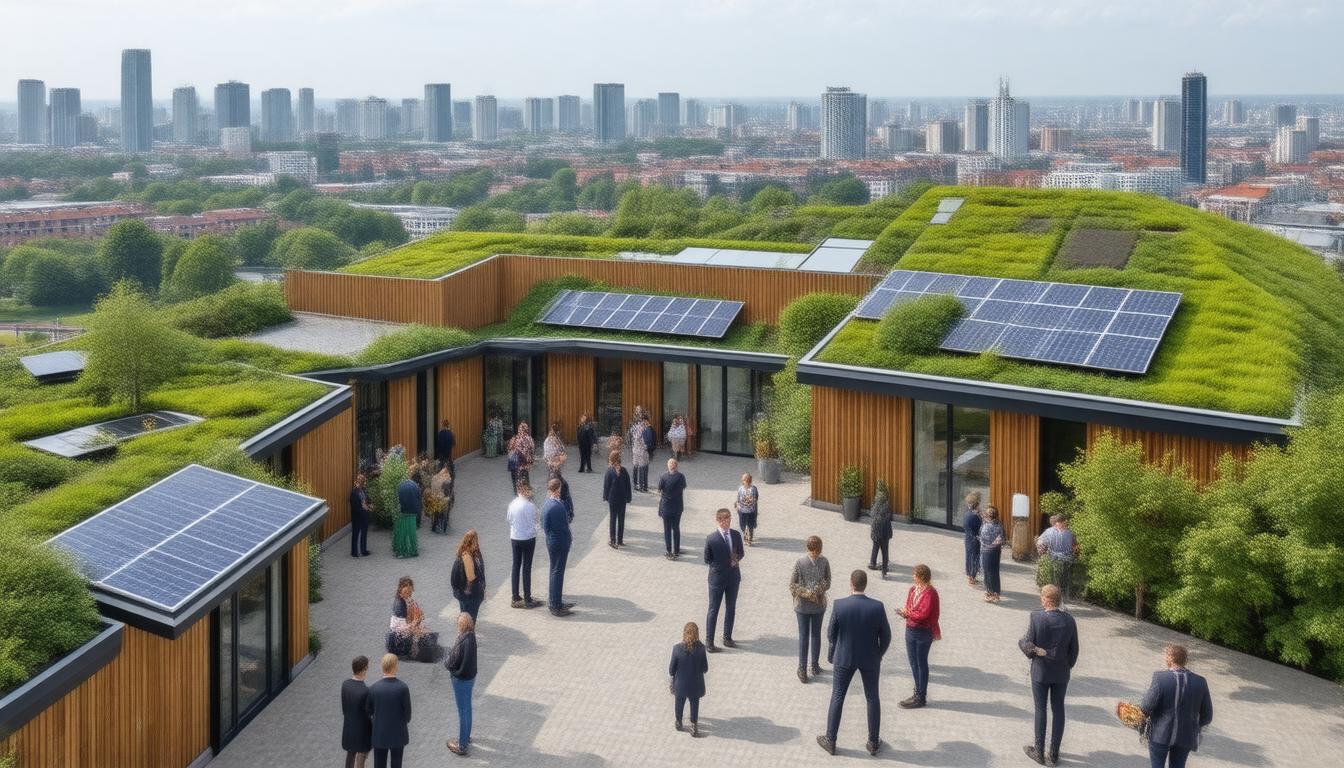In a remarkable shift, Gulf Cooperation Council (GCC) investors are poised to funnel over $4 billion annually into the UK real estate market beginning in
2025. This anticipated surge is largely attributed to favorable economic conditions, including declining interest rates and a pressing focus on sustainability in investments. Recent research conducted by the Bank of London and The Middle East suggests that the primary motivation driving this influx is the expected decrease in UK interest rates, bolstered by recent policy actions by the Bank of England which validate these optimistic projections.
Despite the expectation of lower interest rates facilitating easier access to financing, mortgage rates will still be sensitive to prevailing market conditions. The UK’s economic landscape also plays a pivotal role in attracting Gulf investors, showcasing remarkable stability marked by controlled inflation and a favorable political climate post-Brexit, which collectively places the UK ahead of many of its European counterparts.
Moreover, the persistent housing shortage in the UK, exacerbated by continuous population growth and a significant influx of international students—over 8,000 of whom hail from the UAE alone—heightens the demand for residential properties, particularly in sought-after urban areas. This undercurrent of demand presents a lucrative opportunity for GCC investors. Furthermore, there is an evident shift towards considering Environmental, Social, and Governance (ESG) factors in investment decisions. Investors are increasingly motivated to upgrade properties to meet sustainability criteria, with green-certified buildings projected to yield sales premiums of 8-18% over non-certified alternatives.
As the UK real estate sector aligns itself with evolving sustainability trends, it is anticipated that GCC investors will gravitate towards high-demand residential and eco-friendly properties. In summary, the combination of economic stability and a commitment to sustainability positions the UK to remain a top choice for GCC capitals, particularly in key urban markets.
Key Takeaways
- GCC investors are projected to inject over $4 billion annually into UK real estate starting in 2025, driven by favorable economic conditions.
- The UK’s housing shortage and the influx of international students create significant demand for residential properties, attracting Gulf investors.
- Increased focus on sustainability and ESG factors in real estate investments is leading to higher profitability for green-certified properties.
Economic Factors Fueling GCC Investment in UK Real Estate
In 2025, investors from the Gulf Cooperation Council (GCC) are preparing to inject over $4 billion annually into the UK real estate sector, motivated by a range of economic factors. Recent analyses by the Bank of London and The Middle East spotlight the anticipated decline in interest rates in the UK as a key driver for this surge. The Bank of England’s strategic maneuvers have reinforced predictions of falling rates, which are expected to enhance access to financing for potential buyers (Bank of London and The Middle East, 2024). The UK is becoming increasingly attractive to GCC investors due to its economic stability, characterized by stable inflation rates and a favorable political climate following Brexit, which affords it a competitive edge over other European countries (The Financial Times, 2024).
Furthermore, the persistent housing shortage in the UK, exacerbated by rising population numbers and an influx of over 8,000 international students from the UAE, catalyzes the need for residential properties in high-demand urban areas (Savills, 2024). This creates ample opportunities for GCC investors looking to capitalize on the lucrative real estate market. Additionally, the growing emphasis on Environmental, Social, and Governance (ESG) considerations is shaping investment strategies; properties that meet sustainability standards are recognized to yield higher financial returns—green-certified buildings can command prices 8-18% above their non-certified counterparts (JLL, 2024). As such, GCC investors are likely to focus on high-demand residential and sustainable properties, aligning with market trends and environmental imperatives. Overall, the UK’s combination of economic resilience and emerging sustainability focus positions it as a leading destination for GCC capital, particularly in vibrant urban centers.
The Rise of Sustainable Investment in the UK Real Estate Market
The trend towards sustainable investment is influenced not only by economic factors but also by changing societal expectations regarding environmental stewardship. GCC investors are increasingly recognizing the importance of environmentally sustainable practices in enhancing real estate value. Research indicates that properties with eco-friendly attributes not only meet regulatory requirements but also attract socially conscious tenants, which can lead to lower vacancy rates and stable income streams (Newcomb, 2024). Moreover, the UK government’s commitment to reaching net-zero carbon emissions by 2050 solidifies the strategic advantage of investing in sustainable developments, aligning with long-term market trends and investor interests (UK Government, 2024). The emphasis on sustainable building practices is not only a reaction to consumer demand but also a proactive step for investors looking to future-proof their portfolios against regulatory changes and evolving market expectations in both the UK and GCC markets.





